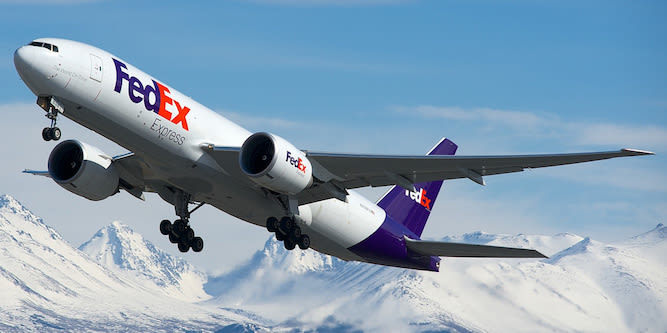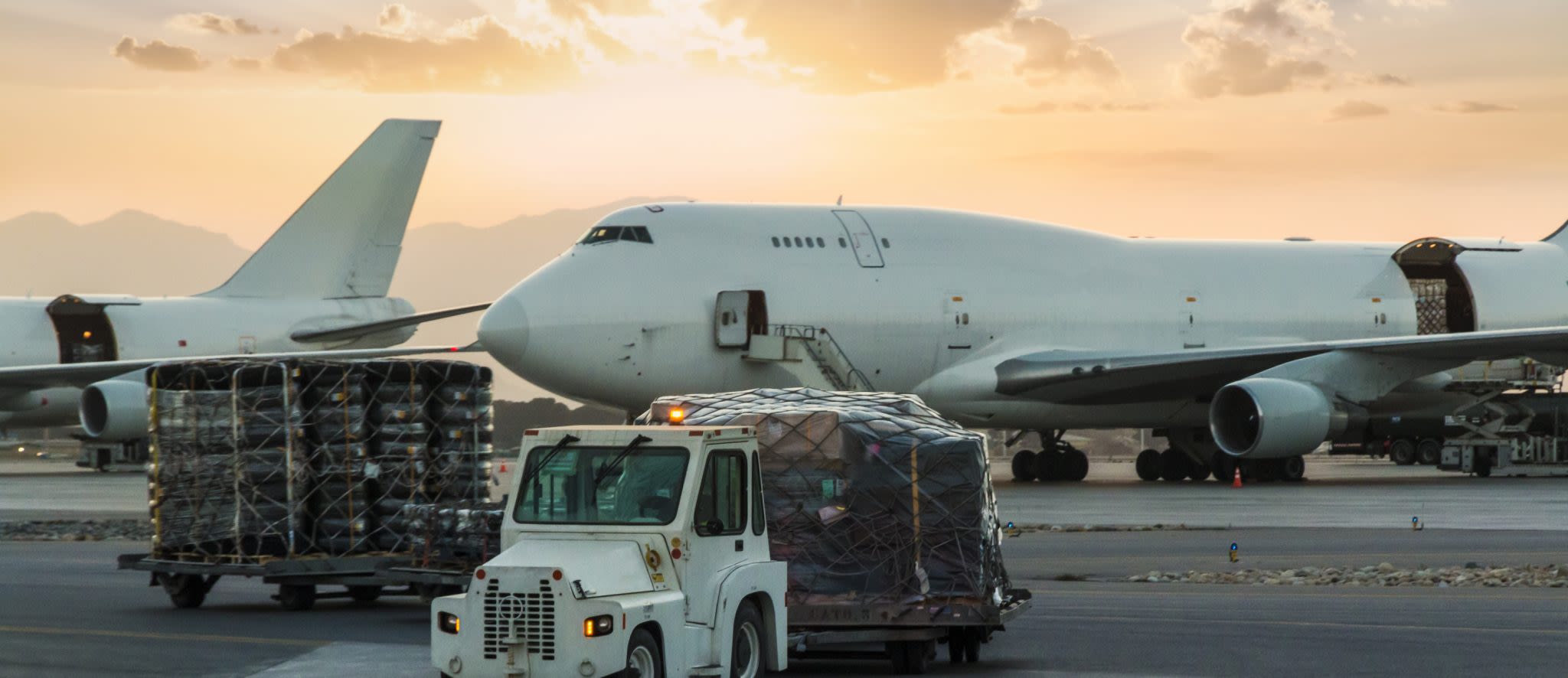
December 30, 2015
Amazon’s New Jets Are Less Threatening to FedEx and UPS Than They Appear
Tags:
Amazon’s New Jets Are Less Threatening to FedEx and UPS Than They Appear

(Photo via BriYYZ)
Update: I’ve realized that some of my initial thinking on this idea was off-base. I have some new thoughts on what Amazon is doing with its jets here.
If the reports are true, Amazon is leasing Boeing 767 jets to get tighter control (and presumably better pricing) on its logistics. It can’t be a fun sight for the folks at UPS and FedEx to see Jeff Bezos coming after their business with a fleet of jets.
Not only do these companies appear to be losing one of their biggest customers, but they may also have to face a company with a track record for reselling access to its infrastructure. It’s easy to imagine Amazon offering a parcel service to other businesses, just as it’s done with its Amazon Web Services products. When it does, we can be sure it will aim to be the low cost provider with the relentless focus on improving customer experiences that has made Amazon such a powerful force in all the other markets where it plays.
FedEx and UPS executives and shareholders are right to take the threat from Amazon seriously. But it’s probably not as bad as it looks. As it turns out, the core profit center for both FedEx and UPS is the long haul international parcel business, an area that Amazon won’t be able to attack.
Here’s the important fact to note: When a company imports products from overseas, it has to disclose details on the origins of those products to U.S. Customs and Border Protection. These details include the name of the supplier, the purchase price, the number of units, and more. If Amazon were managing the airfreight for these shipments, it would have access to all of this sensitive data, data it could use to buy goods directly from the source for less. Given that Amazon competes in just about every category of consumer goods, it’s hard to imagine companies handing over such sensitive details to a company with a reputation for ruthless competition.
Amazon’s new jets make sense for domestic shipping
While Amazon does ship freight internationally for its own lines like Basics, it would likely not make sense to vertically integrate by buying its own jets just for those products. And if that is the plan, it would appear they leased the wrong jets.
Airlines have been adopting the fuel efficient Boeing 777 on the long haul international lanes, shifting the older 767s like the one Amazon bought to shorter domestic routes, or offloading them altogether. Delta just bought a 777 for $7.7M.
Lovingly referred to in the freight forwarding industry as the “mini-freighter” for its ability to haul so much air cargo in its belly even when configured as a passenger plane, the 777’s takeover of major passenger lanes from the 757 and 767 has lead to a massive increase in international airfreight capacity. Combined with record low prices for ocean freight, the overcapacity has lead to downward prices on international airfreight (which is distinct from the parcel business managed by FedEx and UPS) throughout 2015. Regardless of what type of jets Amazon operates, it would be a rough time to enter the international airfreight market.
Rather, it seems clear that Amazon’s jet operations is an effort to save on domestic parcel shipping, and just as importantly, gain more granular control over where they locate inventory. The primary cost driver in parcel shipping is the distance between your inventory and the customer. As one of the biggest parcel shippers, Amazon spent $8.7 billion on outbound shipping in 2014, up from $6.6 billion in 2013.
For ecommerce businesses like Amazon, another key cost driver is the working capital cost of sitting on inventory before it’s sold. If by operating jets Amazon can dynamically position products closer to its customers, it could make a material difference both to the company’s profit margins, by reducing shipping costs, and to its return on invested capital, by reducing working capital needs.
If I were an Amazon shareholder, I’d be very pleased to see bold experiments and investments like this to support the core ecommerce business. Wall Street has fallen in love with the mind-blowing growth and impressive profit margins of the AWS business, but Amazon knows its brand promise and customer lock-in depend on having the best ecommerce experience, with the lowest cost to serve.
As a long-time Jeff Bezos admirer and loyal Amazon customer, I’m very excited to see Amazon getting into the airfreight business. But it’s clear that this move is about securing space for improving its domestic logistics. The sensitivity of the supply chain data shared in international airfreight forwarding, combined Amazon’s reputation for cutthroat competition, mean that Amazon will have to leave the lucrative international air parcel business to FedEx, UPS, and others for the foreseeable future.
About the Author





